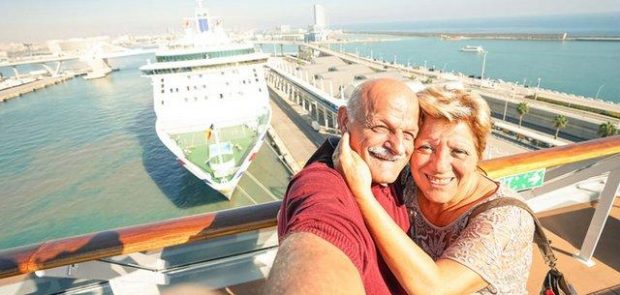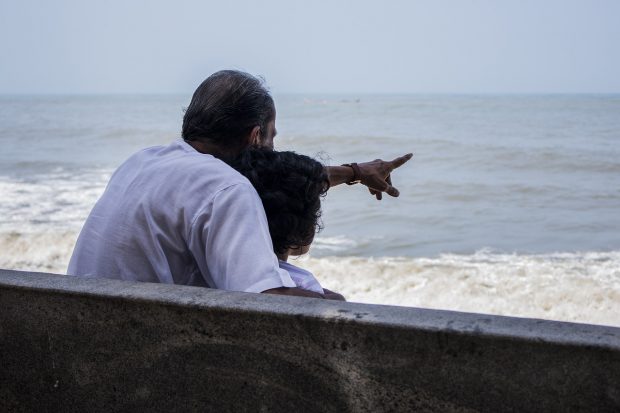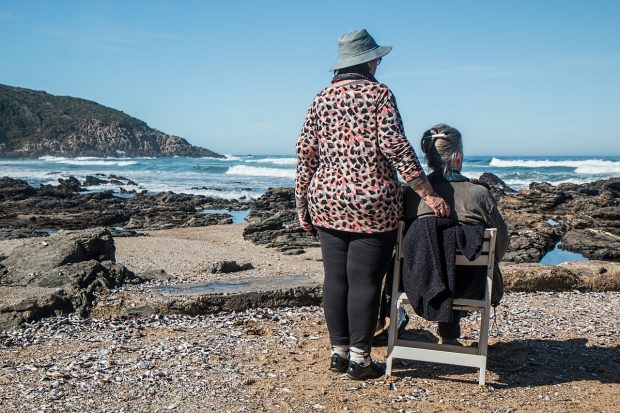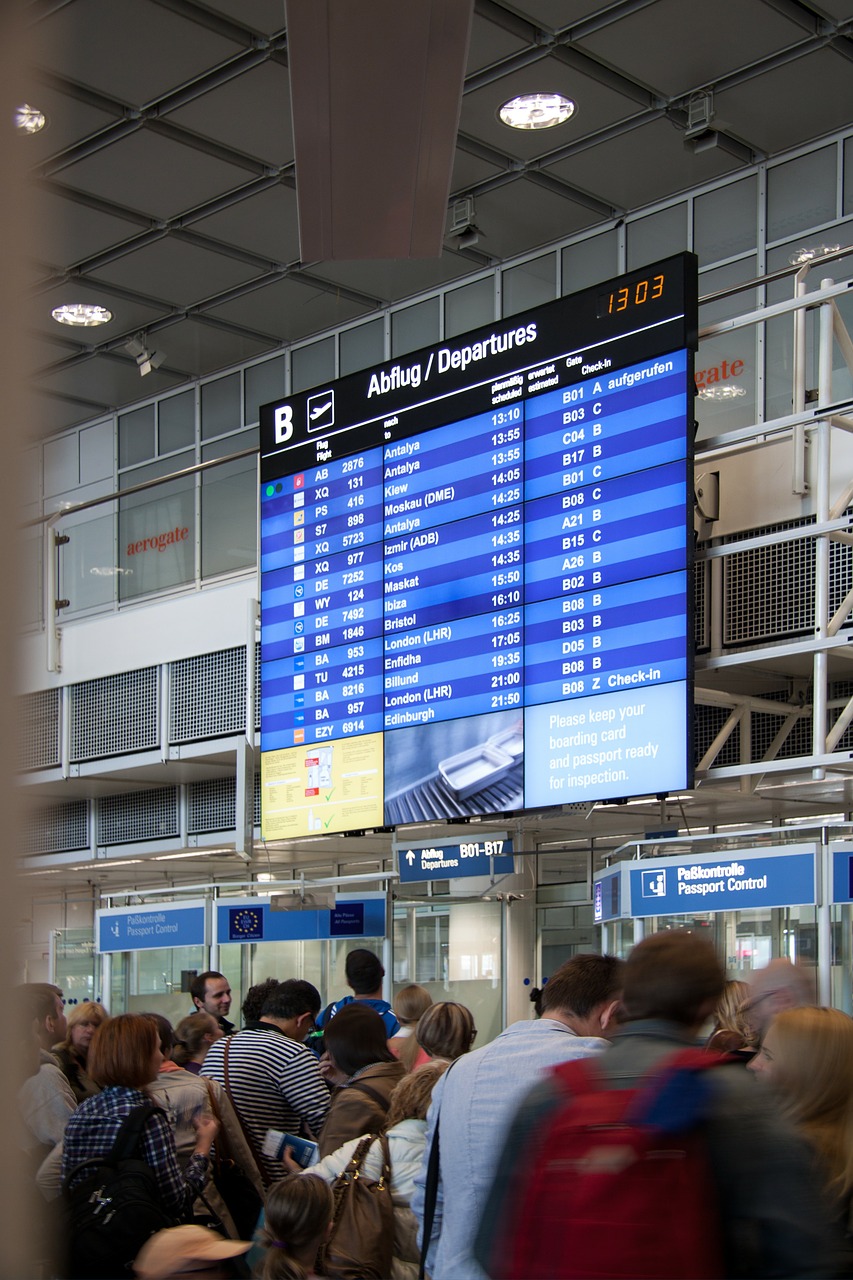Are you planning a trip with a loved one who has been diagnosed with dementia? It might seem a little overwhelming initially, but it is important to understand that if a person has been diagnosed with Alzheimer’s or any other form of dementia, it doesn’t mean that they cannot enjoy quality time with their family. Travelling with them will require some planning, but it will all be worth it in the end.
People with dementia are often uncomfortable in new surroundings and feel uneasy when their routine is disturbed. So, it is recommended to plan a trip during the earlier stages of the disease. Also, try to judge the person’s travel capacity by planning spontaneous one-day short travel trips. If you feel that they are tolerating the change easily, then take it as a green signal to plan your travel. However, if the patient shows signs of constant confusion, paranoia, bladder incontinence, wanting to go home or other symptoms of dementia, it is better to delay the travel plans.

To take care of a dementia patient effectively, it is important to assess yourself too. Are you ready to face unexpected circumstances during your trip? Be mentally prepared to face change in behavior patterns and unforeseen displays of emotional outbursts in public too. So, it is better to keep realistic expectations, rather than assuming everything to go as planned. Dementia symptoms are triggered by new surroundings and tiredness, which is inevitable while traveling. This is why, make sure you are well equipped with patience and have the flexibility to change your plans at the last moment.

Here are some other tips that you should keep in mind when traveling with a dementia patient to ensure a safe trip:
1- Make sure to carry all important documents and medications
The importance of this point cannot be stressed in words. One of the most basic rules of travelling with a dementia patient is to ensure that you keep important documents with you at all times including a list of emergency contacts, medications with their correct dosage, patient’s physician information, your travel itinerary and insurance details. These documents and medications should be stored in a highly accessible and safe bag, so that you can reach for them immediately if the need arises.
2- Get an identification bracelet for your loved one
Be prepared for all sorts of circumstances. A dementia patient may wander off in unfamiliar surroundings, so make sure that your loved one wears an identification bracelet at all times. If you don’t have one, pin their name and your hotel details on their clothing and insert a note in their wallet which states their medical condition.
3- Don’t experiment
People with dementia are not comfortable in unfamiliar and new surroundings, so try to keep the settings as familiar as you can. Bring in some extra blankets, pillows and pajamas from home so that you can reassure your loved one at the time of distress. Be careful in maintaining their everyday routine, as new activities that disturb their daily timetable can add to the confusion.
4- Limit connections and travel time
Avoid unnecessary lay overs and take a direct flight to your destination. It is recommended to opt for shorter travel times with a dementia patient. Travel time should not exceed four hours, as it can get very tiring for your loved one. Bring some food, board games and devices to keep them busy throughout the journey.
5- Avoid meeting a lot of relatives
If you are going to meet family, it is better to stay in a hotel rather than staying at a relative’s place. It is much easier to manage your loved one’s routine in a hotel room. Also, not many people are aware of Alzheimer’s and may not know what to expect. This is why, it is much better to reserve a hotel room and inform them beforehand of any special needs.
6- Always plan in a way so you have extra time
Dementia patients are not as flexible as the rest of us when it comes to adjusting to new surroundings. They need a lot of extra time and patience to adjust in a new place. This is why, make sure you have ample time before leaving for the airport or when going for important meetings. If you exercise patience, the trip will be less stressful for both you and your loved one.
7- Don’t over plan
If you and your loved one want to enjoy the trip, let go of any preconceived expectations. People with Alzheimer’s are often unpredictable, and may display confusion and anger through their actions. They are prone to falls and may hurt themselves. This is why, be prepared for a change of plans at the very last minute.
8- Ask for help
Don’t feel shy to ask for help at any time. You can contact the Transportation Security Administration (TSA) and ask them what to expect during the airport security screenings. Always inform them about the medical condition of your loved one, so they can handle them accordingly.
Airport and in-flight crew are also very cooperative. Let them know if you need any kind of assistance. Always choose a companion care bathroom so that you can assist your loved one. Do not leave them unattended at any time. The best way to enjoy your trip is not to lose your patience and sense of humor, and make the most of your trip!
Conclusion
According to a research by Alzheimer’s association, one person in every 10 people aged 65 years and older (10 per cent) has Alzheimer’s. This is a harsh reality, and if you feel like a loved one is showing signs of dementia, do not let it go undiagnosed. There are many online brain tests available on the web which can assess the mental health of you or a loved one. Take the test results to your doctor to get a full diagnosis.
With dementia on the rise, it is important to shift our focus from the stigma to ways that can help in prevention and cure. People with dementia should be able to live well rather than being treated as outcasts. Try to include your loved one in as many social events as you can. Offer them unconditional love and a healthy lifestyle.
Author Bio
Evie Harrison is a blogger by choice. She loves to discover the world around her. She likes to share her discoveries, experiences and express herself through her blogs. Find her on Twitter: @iamevieharrison
















